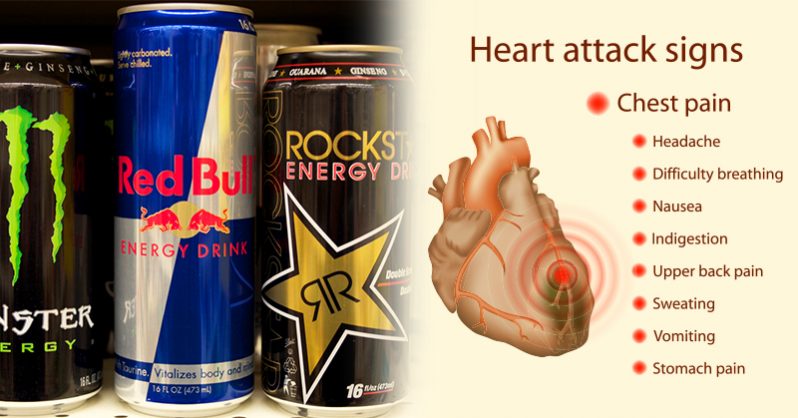Caffeine offers many health benefits, like relieving headaches, improving mental alertness and even treating certain health conditions, such as diabetes and asthma.
Yet, its advantageous properties become disastrous when it is added to drinks that are full of sweeteners, artificial stimulants, toxins, and other additives. Apparently, it might actually wreak havoc on the cardiovascular system and lead to a heart attack.
Unfortunately, this was the case of Cory Terry, a 33-year-old Brooklyn father, whose death was a result of the consumption of one Red Bull, one of the most popular “energy” drinks worldwide.
His mother, Patricia Terry, for the New York Daily News, explained he was an active, non-smoker who drank this drink daily. She added:
“He drank that stuff all the time. He said it perked him up.”
Mayo Clinic Proceedings published a study which showed that energy drinks such as Red Bull may cause great harm to people with cardiovascular conditions, and might even make healthy individuals experience the same symptoms.
One trial which involved 15 individuals who received two cans (500 ml) of an unidentified energy drink almost the same as Red Bull in terms of ingredients daily for a week, showed that their blood pressure was elevated by 8% just 4 hours after consuming the drink, and was increased to 10% by the end of the week.
Moreover, the heart rates of the participants were raised by 8% on the very first day and elevated up to 11% by the end of the week.
These factors actually increased the risk of a heart attack, as high heart rates are linked to an increased heart attack risk, and high blood pressure can damage the arteries which causes stroke and heart attack-causing blood clots.
To illustrate the possible negative effects of this drink, we should first consider the ingredients of Red Bull. Despite being loaded with sugar and carbonation, its main ingredients are various different stimulants, the main two being caffeine and taurine, along with several B-group vitamins.
The main concern is that very little research has been done on the effects of this combination.
The same journal published another study as well, which analyzed the effects of Red Bull on participants before and after exercise. It consisted of 13 participants, experienced in endurance training.
They trained 3 times daily, and before the training, they drank a Red Bull, some other similar drink but without taurine or a placebo without any stimulants.
The results indicated that Red Bull was the only drink that affected the stroke volume, which is the amount of blood pumped in and out of the heart.
This speaks about the possible adverse effects on the cardiovascular system of the combination of the stimulants, even though they might not be harmful if used separately.
Hence, the thing you should keep in mind is that Re Bull and such similar drinks are harmful to your heart, so it is better to avoid them before they have caused some adverse effects. Instead, drink some other healthier drinks or coffee if you need a quick energy booster.
Source:
theheartysoul.com
